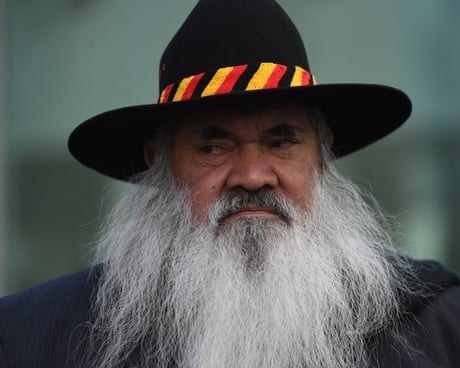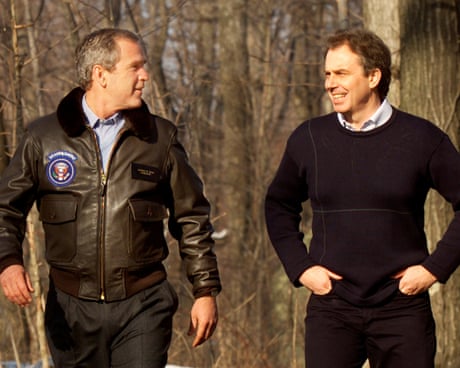Cables and notes reveal UK view on Howard’s personality, Australia’s part in Kyoto ‘awkward squad’ and an aborted cricket match
The just released papers reveal Australia’s fears about its relationships with major powers, and its equivocation about the climate crisis and Indigenous reconciliation are nothing new

Plus ça change. At the turn of the millennium, Australia was in the throes of “one of its periodic bouts of angst over its place in the Asia-Pacific and the wider world”. It was doubting the reliability of its ally the US, wrestling with the issue of Indigenous reconciliation, and attracting criticism for its lack of commitment to addressing the climate crisis.
And it was trying to organise a game of cricket against the English.
Just released papers from Britain’s National Archives shed light on intergovernmental correspondence between the governments of Australia and the UK before a prime ministerial visit to London in 2000 to mark Australia Week, and the centenary of the Australian constitution.
Correspondence between the governments of the conservative prime minister John Howard and the UK Labour leader Tony Blair reveal a suite of problems still being grappled with in Australia a quarter of a century later.
“Personality notes” written for Blair describe Howard as a leader who had “started well” as prime minister, particularly on gun control after the Port Arthur massacre, but who “appeared to lose his way” during his first term.
Importantly for the UK, it saw Howard as an “instinctive monarchist … well-disposed towards Britain”. The sketch says Howard was a “strong family man”, significantly influenced by his wife, Janette, that he was a “fanatical follower” of cricket, and a “great admirer” of Sir Winston Churchill and Mahatma Gandhi.
In a scene-setting cable dated June 2000 prepared for Blair, the UK high commissioner noted: “Australia is going through one of its periodic bouts of angst over its place in the Asia-Pacific and the wider world”.
It said Australia took “enormous national pride” in its intervention in Timor-Leste the year before (despite significant damage to its relationship with Indonesia), saying that the Australian-led peacekeeping mission “raised Australia’s stock in Asia”.
However, “critics argue that it simply hardened a view widely held in Asia that Australia is ambivalent, even antagonist, towards Asia”.
Timor-Leste, the cable noted, had also strained Canberra’s relations with Washington DC.
“The [US’s] perceived reluctance to assist Australia is seen as an indication that the US could not be relied on automatically in circumstances that are of little interest to it.
“More broadly, some are doubting that the US will retain interest in the alliance unless Australia increases its commitment, in terms of defence spending.
“The litmus test is Taiwan: having to choose between the US and China is the nightmare scenario on Australia’s strategic and diplomatic horizon. Few doubt Australia would choose the US but the calculations are becoming less clearcut.”
In 2025, the US defense secretary has insisted Australia lift defence spending to 3.5% of its GDP, while Trump administration officials have demanded assurances from Australia it would support the US in any conflict over Taiwan.



Meaningless junk.
ReplyDeleteHoward is long retired.
I disagree and you missed the point (it's not abort the Dep Sheriff) - it's that the Wankees would never be a reliable ally for the Aussies when the call didn't met wankee needs, to wit, a very selfish self centred so-called ally who won't give a frig about Aussie needs - makes one wonder about the benefits (if any) of the AUKUS bullshit for Aussies
Delete